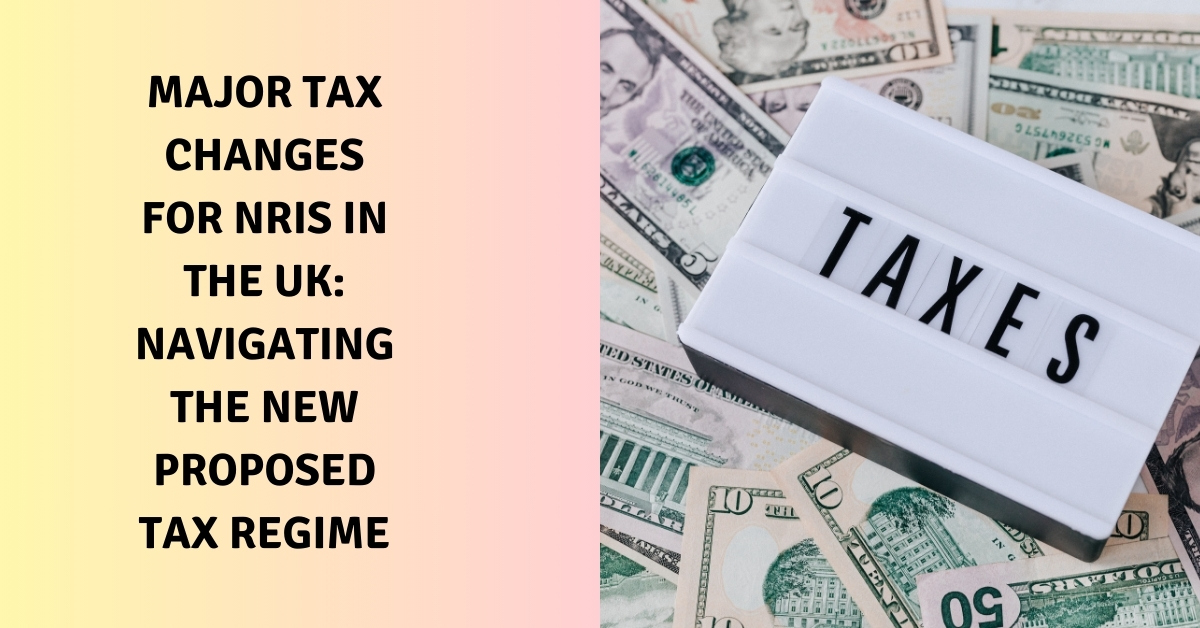Major Tax Changes for NRIs in the UK: Navigating the New Proposed Tax Regime

The British government is on the verge of revolutionising its tax system with a new regime set to debut in April 2025, which will profoundly affect Non-Resident Indians (NRIs) and other recent migrants. This initiative will phase out a longstanding exemption, fundamentally altering the taxation of non-domiciled residents. The exemption, which currently allows these residents to avoid taxes on foreign income unless it’s brought into the UK, will end after four years of residency under the new plan.
Historically, the UK has been a favoured destination for NRIs due to its favourable tax policies. However, the upcoming changes suggest a significant shift, potentially making the UK less appealing for relocation. Initially, NRIs will not be taxed on foreign earnings for the first four years of their stay. From the fifth year onward, however, they will be required to pay taxes on their worldwide income. This includes earnings from diverse sources such as rental properties, fixed deposits, and investments in stocks from India.
For those who have recently moved, the situation presents a mixed bag. NRIs who have lived in the UK for two years as non-doms by the time the new rules take effect will still benefit from two more years of the existing tax relief on foreign income. There is a significant difference in tax rates between the UK and India. For example, the highest tax rate for dividend income in the UK is 40%, compared to India’s 10% under the India-UK tax treaty. Similarly, rental and other incomes are also taxed at higher rates in the UK, leading to potential increases in tax liabilities for NRIs under the new system.
The adjustments extend to those who have been non-domiciled in the UK for a decade, facing a steep 50% tax rate on foreign income in the first year of the new regime. Additionally, any remittances of foreign income earned before 2025 will incur a 12% tax rate for the first two years.
Given these impending changes, it is suggested that Indian families might consider delaying their migration plans until after the next UK election, hoping for a possible policy revision. Existing residents are encouraged to review the potential impacts on their financial planning, particularly concerning inheritance and income sources.
For wealthy NRI families who manage offshore trusts, the new tax rules necessitate a thorough reassessment of their trust structures and distribution strategies. The ongoing debate among experts reflects concerns about the UK’s future attractiveness as a destination for affluent individuals. Countries like Spain, Portugal, and Switzerland offer more lenient tax regimes, and the UK’s reduction of the non-dom period to four years might tilt the balance in their favour.
There is a need for NRIs to reconsider their investment strategies and income structures in light of the upcoming changes. This proactive approach is essential for those seeking to optimise their financial commitments and tax liabilities in the evolving UK tax landscape.
In addition to these changes, the proposed regime calls for NRIs to be more diligent with their financial records and tax filings. The complexity of managing taxes on global income requires robust accounting support and possibly, more frequent consultations with tax advisors. With the tax landscape becoming more intricate, there is an increased risk of compliance issues which could lead to penalties if not managed properly.
Community forums and professional networks for NRIs are buzzing with discussions about these changes, sharing strategies and advice on how to best prepare for the new tax environment. NRIS must stay informed and engaged with these changes to navigate through the complexities of the new tax regulations effectively.
Overall, while the new tax regime presents challenges, it also offers an opportunity for NRIs to reevaluate their financial strategies and ensure that their wealth management practices are aligned with the changing regulations. This period of transition will be crucial for NRIs to adapt and plan for a secure financial future in the UK.
Given the complexities and potential financial implications of these new tax laws, the role of an NRI financial advisor becomes even more critical. Navigating through the myriad of tax regulations, understanding the intricacies of cross-border taxation, and planning for future financial security require professional expertise and guidance. An experienced NRI financial advisor in UK can provide valuable insights, help manage risks, and optimize financial strategies to align with both current and future tax obligations. This professional support ensures that NRIs can make informed decisions and maintain their financial well-being amidst the evolving tax landscape in the UK.




